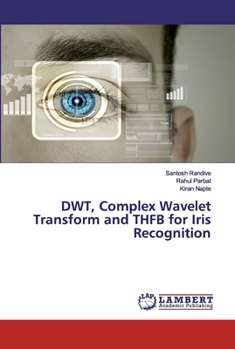DWT, Complex Wavelet Transform and THFB for Iris Recognition
Select Format
Select Condition 
Book Overview
Iris Recognition System is a process of recognizing an individual by analyzing the random pattern of iris and comparing with database. A comparative analysis is performed with wavelet transform such as Discrete Wavelet Transform (DWT), Rotated Complex Wavelet Filter (RCWF) and Triplet Half-Band Filter Bank (THFB) for iris recognition. These approaches are tested on various databases. The process starts from pre-processing. In pre-processing stage the image is enhanced, segmented and normalized. Now smoothed image is taken into consideration for feature extraction using above mentioned wavelet transforms. Finally a post-classifier is applied to resultant image for reducing false rejection rate.
Format:Paperback
Language:English
ISBN:6202531460
ISBN13:9786202531467
Release Date:April 2020
Publisher:LAP Lambert Academic Publishing
Length:76 Pages
Weight:0.27 lbs.
Dimensions:0.2" x 6.0" x 9.0"
Customer Reviews
5 customer ratings | 5 reviews
There are currently no reviews. Be the first to review this work.





















